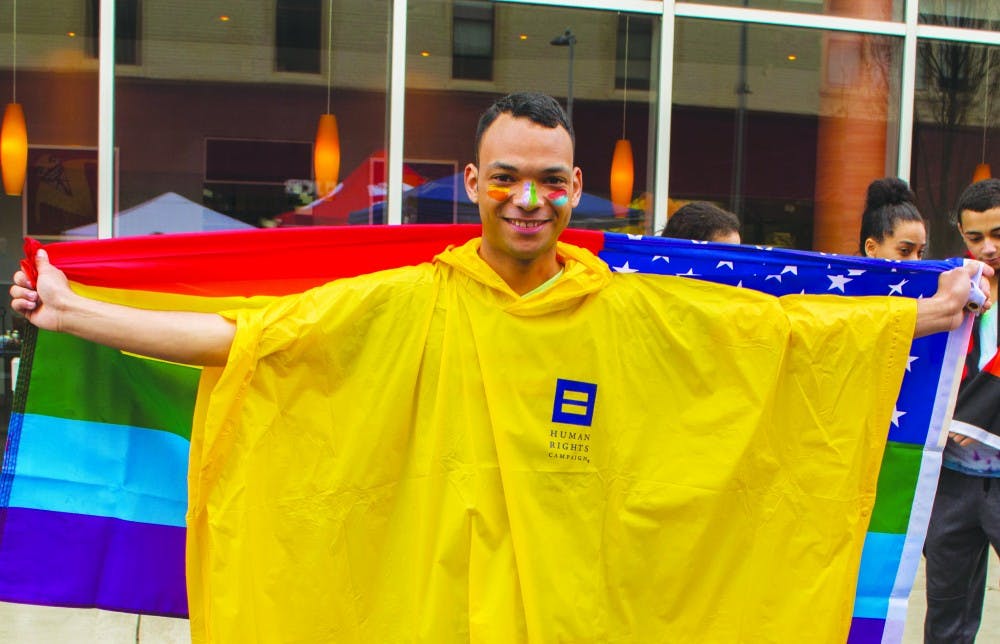In honor of National Coming Out Day, University Program Board (UPB) and Spectrum will host a celebratory and informational event from 6-8 p.m. Oct. 11 in the L.A. Pittenger Student Center Ballroom.
The first hour of the event will introduce what National Coming Out Day is, and the second hour will be an open mic for anyone who wants to tell their story, said Spectrum president Brooklyn Arizmendi.
“It’s a confidential space where we can talk about [coming out] … and celebrate our experiences in some ways,” Arizmendi said.
Kaitlyn Stankiewicz, a graduate assistant for student center programs, including UPB, said via email there also will be a sand art craft and a raffle for large pride flags.
In 1987, Oct. 11 was established as National Coming Out Day in the United States by psychologist Richard Eichberg and gay rights activist Jean O’Leary, according to the American Psychological Association.
Eichberg and O’Leary chose the day because on Oct. 11, 1986, half a million people protested for the LGBTQ+ community in Washington, D.C.
Coming out is the process of letting people know that one is a part of the LGBTQ+ community, said Khanya Msibi, the student government representative for Spectrum.
“[Coming out] can be done various ways,” Msibi said. “I’ve heard it being done online, it can be done face to face, it can be done in multiple ways, it can be done outside your hometown … the main thing is that it never stops. You never stop coming out.”
Msibi also said coming out should be something a person does when they are ready, but not everyone has the luxury of coming out by choice.
“Most of the time [coming out is] really, really scary,” Msibi said. “Sometimes you lose really close friends and family members because of it, so you really have to be prepared to do that.”
People can identify as many different gender and sexuality labels because gender and sexuality are not binary –– there are more than two genders and there are more than two types of sexuality, Arizmendi said. Sexual identity and gender identity are different and separate, and they may affect each other but don’t depend on each other, Arizmendi said.
Msibi said some of the more specific terms can be used interchangeably and just because someone identifies one way doesn’t mean they won’t have a relationship with someone who identifies another way.
“Labels are there if you need them. If you want to have hard-line labels, you can, but ultimately it doesn’t really matter,” Msibi said. “A lot of things are different for a lot of people, and how these words are used are kind of reflective of that.”
Arizmendi agreed “It doesn’t matter what their gender is, but it probably should matter what their pronouns are.”
Arizmendi said it doesn’t matter what a person’s gender is, but it does matter what pronouns they use. The polite way to ask for pronouns, she said, would be to mention what pronouns a person uses after introducing themselves, which would prompt the other person to respond the same way.
“It’s like, ‘Hi, my name is Brooklyn, and I use she/her pronouns,’ and that opens the other person up to disclosing their pronouns if they’re comfortable,” Arizmendi said. “And of course, if someone wants you to use specific [pronouns], they’re probably gonna mention that.”
Contact Hannah Gunnell with comments hrgunnell@bsu.edu.





